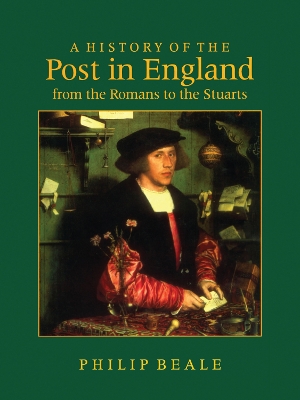Routledge Revivals
1 total work
A History of the Post in England from the Romans to the Stuarts
by Philip Beale
Published 28 August 1998
From Roman times until this century the business of government has been largely carried out by the writing of letters, either in the form of instructions or of authorisations to deliver information orally. These documents were addressed to the recipient and authenticated by a seal or signature, often having a greeting and a personal conclusion. The messengers who took them also carried copies of laws and regulations, summonses to courts and whatever else was needed for the administration of the country. Without a means of speedy delivery to all concerned there could be no effective government. Separate postal services developed to meet the needs of nobles, the church, merchants, towns and the public. This book discusses three meanings of the word 'post': the letters, those who carried them, and the means of distribution. It shows that there is some continuity from Roman times and that the postal service established throughout England after the conquest of 1066 continued until 1635 when it was officially extended to the public, thus starting its amalgamation with the other services.
